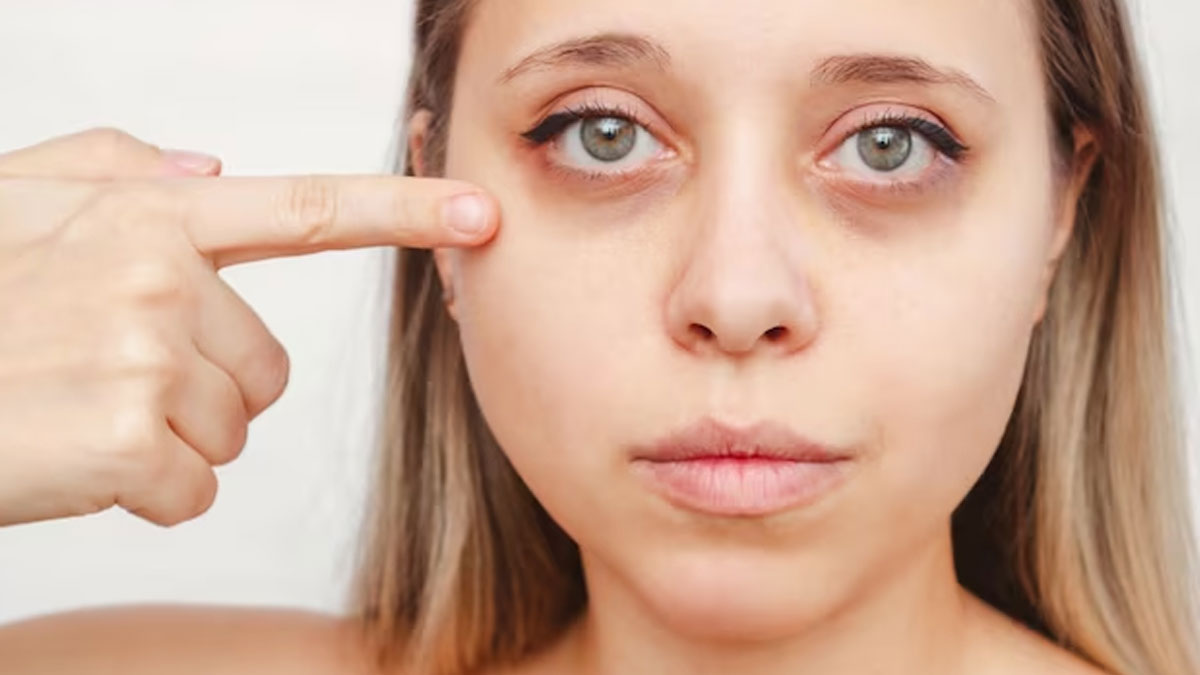
Bags under the eyes or puffy eyes are the little regions of oedema(swelling caused by fluids). As you become older, the tissues around your eyes, including some of the muscles that support your eyelids, become weak. Fat that supports the eyes can then begin to shift into the lower eyelids, causing puffiness.
Table of Content:-
According to the American Academy of Ophthalmology, several factors might contribute to eye puffiness, but the fundamental reason is the fluid collection.
Reason Behind Puffy Eyes
Puffy eyes are a common beauty concern that many people experience at some point in their life. Following are a few reasons behind puffy eyes:
Lack Of Sleep
Not getting enough sleep can cause fluids to accumulate around the eyes, leading to puffiness.
A study by the Sleep Research Society found that sleep deprivation can cause under-eye puffiness. Also, droopy eyelids, inflamed eyes, and dark circles under the eyes are possible side effects. Additional symptoms include pale skin and a drooping mouth.

Allergies
Allergies can cause inflammation and swelling in various parts of the body, including the eyes. Allergic reactions may be triggered by factors like pollen, dust, or pet dander.
Also read: Sunken Eyes - Causes, Symptoms And Remedies
As per Mayo Clinic, puffy eyes are frequently caused by allergies. This occurs because defensive cells in your eyes called mast cells release immune proteins called histamine in response to allergens. As a result, your eyes become sensitive and watery. Also, ears will form in your eyes as a result of the pollen or other allergen.
Sinusitis
Sinusitis is an inflammation of the sinuses, which are the air-filled spaces behind your cheekbones and forehead. The New York Otolaryngology Group states that when the sinuses become inflamed, they can put pressure on the eyes and cause them to become puffy.
Dehydration
Not drinking enough water can cause fluid retention in the body, which can lead to puffiness around the eyes. To keep track of your hydrating routine you can set reminders on your phone.
Ageing
As our age increases, the skin around the eyes loses elasticity and becomes thinner. According to the Mayo Clinic, it can cause the eyes to appear puffy or saggy.

Hormonal Changes
American College of Obstetricians and Gynecologists mentions that changes in oestrogen and progesterone levels can cause fluid retention throughout your body. This can happen during pregnancy or menstrual cycle.
Genetics
Some people may be genetically predisposed to having puffy eyes. This could be due to factors, such as a weakened lymphatic system or a tendency to retain water.
Also read: 6 Warning Signs To Get Your Eyes Tested
Treatment Options
There are several ways to treat puffy eyes, depending on the underlying cause. Primarily, it is important to sleep well. American Academy of Sleep Medicine advises avoiding alcohol and caffeine 6 hours before bedtime as an excellent approach to ensure you get better sleep
Applying a cold compress to the eyes can help reduce inflammation and swelling. You can use chilled cucumber slices or a gel eye mask.
Drinking plenty of water can help reduce water retention in the body and prevent puffy eyes.
In some cases, medical treatments may be necessary to treat persistent puffy eyes. Mayo Clinic suggests procedures like laser resurfacing or blepharoplasty (eyelid surgery). If you are concerned about persistent puffiness or other eye-related issues, it is best to consult a healthcare professional.
Also watch this video
How we keep this article up to date:
We work with experts and keep a close eye on the latest in health and wellness. Whenever there is a new research or helpful information, we update our articles with accurate and useful advice.
Current Version
